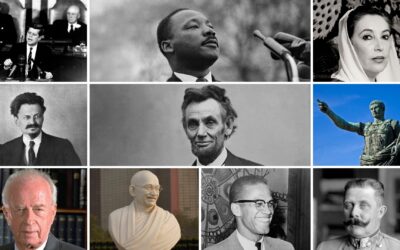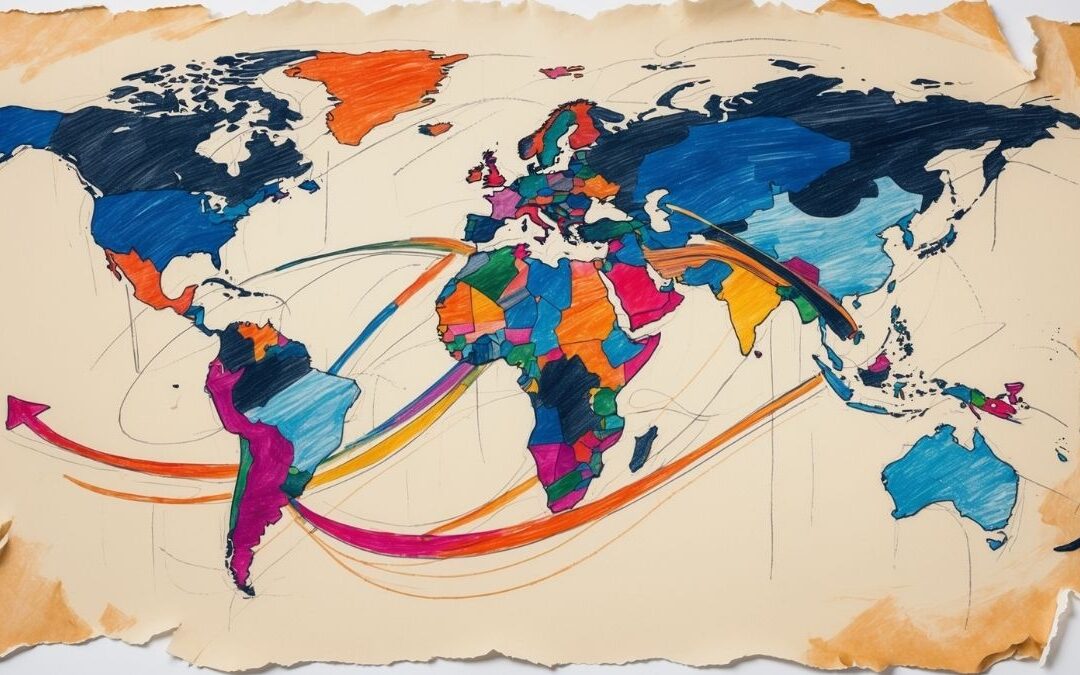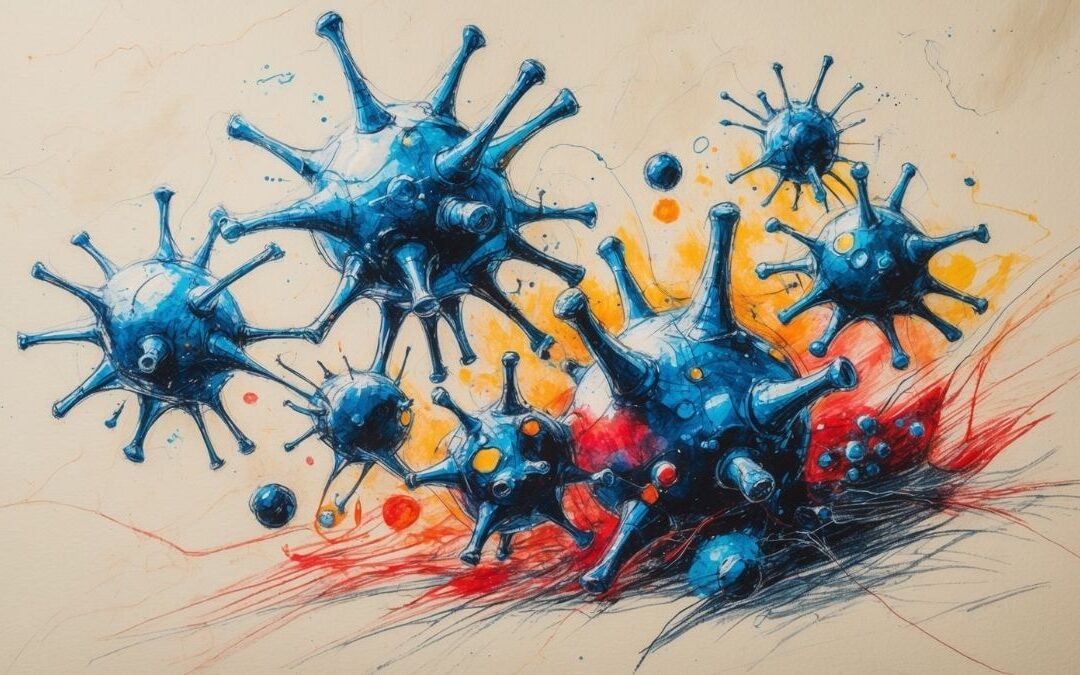In the grand tapestry of human civilization, scientific discovery has always occupied an eminent position, inspiring awe and fear in equal measure. Every epoch of our existence has borne witness to breakthroughs that have simultaneously propelled humanity forward and questioned the very essence of our moral compass. This piece is an exploration into the labyrinth of ethical conundrums that scientific discovery frequently incites.
In the dawn of civilization, human mastery over fire marked the first significant scientific advancement. The discovery, though elemental by modern standards, encapsulates the inherent ethical dichotomy of science. Fire, in its benevolence, provided warmth, protection, and a means to cook food. But in its wrath, it could ravage entire settlements, inflicting devastating losses. This dual nature of scientific discovery has endured through the ages, with each major breakthrough offering both a promise and a quandary.
Fast-forwarding through time, the Renaissance era bore witness to significant scientific progress. The heliocentric model proposed by Copernicus challenged the existing geocentric cosmology, inciting vehement opposition from the Church. While the new model reflected an empirical reality, it also plunged society into an existential crisis, testing its collective capacity to accept change.
Galileo’s support for the Copernican model and his use of the telescope to validate it led to his trial and house arrest by the Inquisition. This episode underscores an ethical question that remains relevant: Should scientific truths be suppressed in the face of societal discord? The interplay of science, society, and morality took center stage, a dynamic that continues to play out in modern times.
The birth of modern medicine brought about a new set of ethical quandaries. Medical experimentation on human subjects, while crucial to advancements, raised questions about consent and the extent of harm acceptable in the pursuit of knowledge. The Nuremberg Code, formulated in the aftermath of the gruesome Nazi human experiments, sought to provide ethical guidelines. However, subsequent controversies, such as the Tuskegee Syphilis Study, underscore the continuous struggle to balance scientific progress and human rights.
Perhaps the most poignant example of the ethical pendulum in scientific discovery is the advent of nuclear technology in the 20th century. The development of nuclear weapons, starting with the Manhattan Project, marked a turning point in the history of warfare and scientific responsibility. Nuclear technology offered an unprecedented source of energy but also unveiled a horrifying potential for destruction.
Albert Einstein, whose equation E=mc^2 was fundamental to the understanding of nuclear energy, was among the scientists grappling with the moral implications of their work. Leo Szilard, who initially advocated for the development of nuclear weapons, became a vocal critic after the bombings of Hiroshima and Nagasaki. The conscience of these scientists exemplified the moral turbulence induced by their creation.
In the contemporary era, new ethical quandaries are emerging in areas like genetic engineering, artificial intelligence, and data privacy. As genetic manipulation techniques like CRISPR offer promises of eradicating hereditary diseases, they also raise concerns about ‘designer babies’ and the possible erosion of genetic diversity. Similarly, as artificial intelligence permeates society, questions about job displacement, surveillance, and autonomous weapons pose pressing ethical challenges.
Throughout the annals of scientific discovery, the ethical pendulum swings persistently. It oscillates between the promise of human advancement and the potential for misuse or unintended consequences. As we forge ahead into the uncharted territories of scientific progress, this balance continues to be a critical factor.
Scientific discovery, by its nature, disrupts existing paradigms. As scientists, we are duty-bound to explore the unknown and push the frontiers of knowledge. However, this pursuit must be tempered with a conscious appraisal of the potential ethical implications.
Scientists bear the responsibility not just for the birth of their discoveries but also for the life they take once they enter society. This stewardship requires a continuous engagement with ethics, a readiness to challenge the status quo, and the courage to navigate uncharted moral landscapes.
In this delicate balance between discovery and ethics, the collective conscience of humanity plays a pivotal role. The past has offered us valuable lessons, and the future will undoubtedly present new challenges. As we strive to advance scientific knowledge, let us also remain steadfast in nurturing an ethical framework that respects human dignity, values social harmony, and champions the greater good.
Our journey through the historical landscape of scientific discovery and its ethical considerations has been a voyage across centuries, disciplines, and moral dilemmas. While we cannot predict with certainty the ethical questions that future scientific discoveries will pose, we can prepare to engage with them thoughtfully, responsibly, and with an unwavering commitment to the sanctity of human life and the preservation of our planet.
Thus, as we continue to unveil the secrets of the universe, let us also commit to an unending exploration of the ethical cosmos that accompanies it. For in this quest, we will find not just the power of knowledge, but the wisdom to wield it for the betterment of all humanity.
Keywords:
- Ethical Dichotomy: The division or contrast between two things that are or are represented as being opposed or entirely different in terms of ethics.
- Heliocentric Model: An astronomical model in which the Earth and planets revolve around the Sun at the center of the Solar System.
- Geocentric Cosmology: An outdated model of the universe where Earth is at the center of the universe and all celestial bodies revolve around it.
- Inquisition: The institution of the Roman Catholic Church that was created to discover and suppress heresy, often using severe or brutal methods.
- Nuremberg Code: A set of research ethical principles for human experimentation established as a result of the Nuremberg trials at the end of the Second World War.
- Manhattan Project: A research and development project during World War II that produced the first nuclear weapons.
- Genetic Engineering: The direct manipulation of an organism’s genes using biotechnology.
- CRISPR: A family of DNA sequences in bacteria and archaea. The sequences contain snippets of DNA from viruses that have attacked the prokaryote. These snippets are used by the prokaryote to detect and destroy DNA from similar viruses during subsequent attacks.
- Autonomous Weapons: Weapons systems that can select and engage targets without human intervention.
- Ethical Cosmos: The expansive and complex universe of ethical considerations and dilemmas.
Key Takeaways:
- Throughout history, scientific discoveries have often brought with them a set of ethical dilemmas and moral questions.
- From the mastery of fire to the development of nuclear weapons, each scientific advancement offers both a promise and a quandary.
- The scientific community has the responsibility to appraise the potential ethical implications of their discoveries.
- Newer fields of technology like genetic engineering and artificial intelligence are bringing forward fresh sets of ethical challenges.
- An ongoing engagement with ethics and a readiness to challenge the status quo are crucial as we continue to make scientific progress.
The Nuclear Age Articles
Unraveling The Atomic Age: The Life and Legacy of J. Robert Oppenheimer
Unveiling the Atom: The Manhattan Project’s Deep Impact on World History
Albert Einstein: The Maverick Mind that Revolutionized Physics
Leo Szilard: The Atomic Pioneer’s Crusade for Peace
The Ethical Odyssey: Exploring Morality in the Course of Scientific Discovery
Los Alamos National Laboratory: Navigating the Past, Present, and Future of Scientific Innovation
The Cold War: Superpowers in the Ballet of Weaponry
Nuclear Proliferation: The Ever-Present Global Challenge
Interplay of Science and Politics: The Unsung Dance of Progress
Enrico Fermi: Mastermind Behind the Nuclear Age
From Atomic To Thermonuclear: A Detailed Examination of Nuclear Weapon Evolution
The Unforgotten Echoes: Hiroshima and Nagasaki’s Tale of Nuclear Devastation and Human Resilience
Living Under the Mushroom Cloud: The Psychological Impact of the Nuclear Age
Nuclear Fallout: Unmasking the Invisible Threat to Health and Environment
The Power and Peril of Nuclear Energy: A Balanced Perspective
Radiation Sickness: Unveiling the Hidden Costs of the Nuclear Age
From Darkness to Light: Lessons from Chernobyl and Fukushima
Deciphering the Nuclear Waste Conundrum: The Path Towards Sustainable Solutions
Guarding the World from Nuclear Threats: International Laws for Nuclear Disarmament
Journey to Peace: Unraveling the Path to Global Nuclear Disarmament
Culture Echoes of the Atomic Age: Artistic Narratives in the Nuclear Era










0 Comments